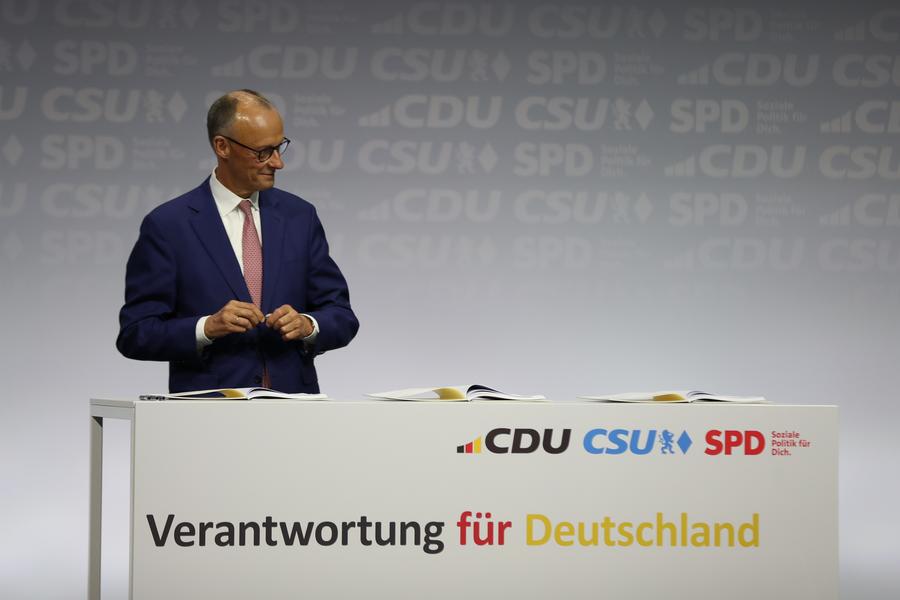
The more volatile the world becomes, the more important it is for major countries to stay focused and maintain stability in their ties.
Having regarded Germany as a key cooperative partner since the establishment of diplomatic relations in 1972, China has always sought to work with Germany to establish a stable and consistent relationship. And thanks to the dedicated efforts of both sides and the high degree of mutual trust built up over the years, relations between the two countries have generally demonstrated a positive development momentum.
However, the Ukraine conflict, which has had a significant impact on Germany, affecting its energy security, economic relations and security considerations, has prompted Germany to draw closer to the United States, with the predictable result that pressure has been brought to bear on it to "decouple" from China. This has led to it reassessing its ties with China and calls within Germany's political circle for a recalibration of relations, which has inevitably had a negative impact on relations.
READ MORE: Xi congratulates Merz on election as German chancellor
From 2016 to 2023, China was Germany's largest global trading partner. In 2024, the bilateral trade volume between China and Germany decreased 2.4 percent year-on-year to $201.88 billion.
Yet more than 5,000 German companies are operating in China and a report by the German Chamber of Commerce in China in December shows that 92 percent of German companies plan to maintain their operations in China and 51 percent of them plan to increase their investment in China within the next two years.
In his congratulatory message to Friedrich Merz on his election as chancellor of Germany on Tuesday, President Xi Jinping said that he highly regards the development of China-Germany relations, and is ready to work with Merz to consolidate political mutual trust, deepen exchanges and cooperation and open a new chapter in the all-round strategic partnership between China and Germany.
Merz, having served as leader of the Christian Democratic Union and a key member of the German parliament, Bundestag, for many years, is considered to be tougher on China than his predecessor, especially on security matters, but he is also considered to be pragmatic.
ALSO READ: 50 years on, China-EU partnership remain a stabilizing force amid global uncertainties
Given the magnitude of China-Germany economic relations, a shift in political rhetoric shouldn't be considered equivalent to decoupling.
To leverage the achievements that have been made so far and build on them for the future, Merz needs to ensure that the differences that have emerged and the strains imposed on the German economy by geopolitical tensions are not to the detriment of the cooperative relations between Germany and China.
His government should work with Beijing to properly handle the issues that have arisen through dialogue. Also, as a major player in the European Union, Germany, as before, should continue to play a leading role in promoting the healthy development of Sino-EU ties.


